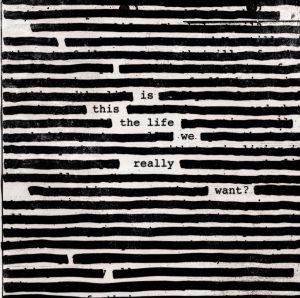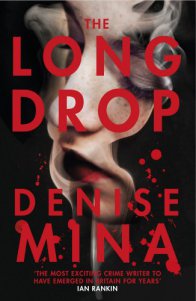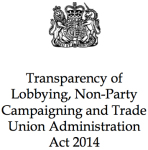
We are a Democracy and what we say goes.
As of the time I write this…Roger Waters is 73 years old.
As of the time I write this…Roger Waters is one of the most successful “rock stars” on the planet.
As of the time I write this…Roger Waters is still one very pissed-off man.
And if I were to write this same piece again in a year, two years, five years…Roger Waters will still be one very pissed-off man.
Success, accolades, fame, money, respect, none of these things are going to soften ole Roger. No, Roger still wildly stares at the world and doesn’t like all that he sees. And he is going to let you know about. And subtlety is not his strong suit.
It’s 2017 and it’s safe to say that no one was running around asking for a new Roger Waters album. His most recent solo effort (Amused to Death) was released over 25 years ago and was met with a collective ‘meh’ by fans and critics alike. Since then, he has toured the world as a solo artist (with amazing pick-of-the-litter backing bands), bringing his audiences along for the nostalgic classic rock trip of a lifetime. He’s played Dark Side of the Moon in it’s entirety, he’s re-created The Wall as a multi-media live experience (props, sound effects, and puppets included). Why wouldn’t he? Those are two of the biggest and most widely recognized rock albums in history. No one was going to those shows to hear songs from Radio K.A.O.S.
So what’s the point of a new Roger Waters album? What does he have left to prove? His place in the rock cannon is well secured. Pink Floyd (or what’s left of them) released their final “album” a couple of years ago (pretty much a bunch of outtakes) and no one was comparing that or any other post-Waters Floyd output to the great Floyd albums of the 70’s. So there was no need for Roger to compete with his old mates, no reason to add to the Pink Floyd lore.
Which leads us to Is This The Life We Really Want?, released in June 2017 to a surprisingly receptive and anticipatory audience. Perhaps its a combination of Roger playing Desert Trip in the summer of 2016 for 8 billion people (and probably a paycheck equal in size) and his relentless touring schedule of the past 10-15 years that has led some fans to actually look forward to hearing a new album. Roger has made sure he didn’t disappear into the sunset as many of his brethren have chosen (or were forced) to do. He has kept up his end of the bargain by maintaining a credibility and by putting on highly entertaining, well-produced, and well-performed shows. He wrote an opera! No one would ever accuse him of “mailing it in.” He has the desire to remain relevant and the current political climate is ripe for Roger to chime in and do just that.
Is This The Life We Really Want? is a political album and an angry one at that. The Final Cut was also a political album, the anger replaced by contemplation, suspicion, and loss. Animals was a political album, the anger hidden by deep conceptual correlations between men and pigs, dogs, and sheep. So it’s to no surprise that Is This The Life We Really Want? most closely resembles these two Floyd albums. Producer extraordinaire Nigel Godrich seems to have compelled Roger to combine the best elements of these works with an updated production technique while still holding on to the obligatory Floydian sound effects (heartbeats, ticking clocks, radio/tv stations…check). Godrich is most known for his work with Radiohead and it’s hard not to hear how he infused some of their recording aesthetics into Rogers orbit.
First, there are the strings. Floyd has been using them since The Wall and Roger, more notably, used plenty of them on The Final Cut and Pros and Cons. Their lushness throughout the album are spine-tingling at best, overwrought at their worst. Strings and rock music have a very capricious relationship but Roger has found a way to enable the orchestration to enhance his music without overwhelming it. Throughout Is This The Life We Really Want? it is the strings that add the moodiness, the depth, and the cinematic tension and release.
Secondly, there are the drums. Pink Floyd were never really known for their drumming. Nick Mason is a fine player, his biggest strength being his ability to always play to the song. It’s no secret that compared to his peers at the time, Nick was low on the totem pole of “great rock drummers.” As well, I was never a big fan of the drum sound on Floyd albums. Their early works compressed the drums to almost inorganic levels and their later works over-produced the hell out of them. Here is where Nigel Godrich really shines. By no means is this a “drum” album but the drum sounds here are amazing. I can’t help but think of the Radiohead song “Nude” when I hear Is This The Life We Really Want?. The sparse reverb, the tight kick/snare, the efficient offbeat fills. At no point do you really notice the drums unless you are actually listening for them but it’s nice to hear that Roger finally allowed them their place in his sonic palette.
So here we are, all the way into this write-up and what hasn’t been mentioned? Guitars. If there is one thing that most folks will say defines “The Pink Floyd Sound” it’s the roaring guitar solos. Guess how many guitar solos are on Is This The Life We Really Want?? None. The synthesizer has replaced the guitar in many modern bands and Roger seems just fine with that (sans the occasional acoustic strum/volume swelling sound effect). After all, this is a guy who has now recorded with three of the greatest guitar players of all time (David Gilmour, Eric Clapton, and Jeff Beck) so it’s understandable that he would want to move on from that sound. He doesn’t need it, or, he think’s he doesn’t need it. Part of me has to wonder if perhaps deep down, somewhere in his sub-conscious, Waters has never gotten over the fact that Gilmour is most associated with the classic Pink Floyd sound (or that he went on to put out Floyd albums without him). It’s Gilmour’s solos on “Comfortably Numb” and “Money” that people remember while Roger stews in the background about concepts, naming rights, and it being “my fucking pig!” Was the exclusion of the guitar solo calculated or something that was organic?
Lyrically, well, Roger is Pissed Off. Whereas Animals, The Wall, and The Final Cut all had elements of political rebellion and ire in their lyrics, no one has ever really considered Pink Floyd a “political band” like U2, Public Enemy, or Rage Against The Machine. Is This The Life We Really Want? does not hold it’s tongue on the state of American politics, the environment, famine, war, the refugee crisis, selfies, reality TV, technology, or any of the other obvious modern social ills. “Drug music” right? Let’s get high and talk about the current state of Syria or the never-ending crisis in the Middle East that Roger hopes to solve by releasing politically scathing albums. I consider Roger Waters one of the greatest lyricists in rock music. He has the capacity to paint a picture with words and his clever ability to turn a phrase or drop a one-liner has always been one of his strongest assets. He is also widely considered to be one of the least modest actors in music. When he sings, “If I had been God…I think I could’ve done a better job.” I can’t help but picture his previous band mates coyly smiling to themselves and thinking, “You see, world? See what we had to deal with?” Only Roger Waters would sing such a line without a hint of irony.
Here is a question to contemplate: can an artist bite off themselves? The best moments on Is This The Life We Really Want? are the familiar ones, the songs that sound like classic Pink Floyd. And if there is one song most represented/repeated/bit off of it’s “Sheep” from Animals. A few tracks borrow quite liberally from the Animals upbeat rocker (mainly “Picture That” and “Bird In a Gale”). “Smell The Roses” and “Pigs” share the same DNA and the chord structure from “Mother” is well adapted throughout. We also hear plenty of The Pros and Cons of Hitchhiking style acoustic balladry and The Final Cut/The Wall emotive chord structures. You could probably replace the lyrics/melodies on a few of these songs with previous Floyd works and some in the audience wouldn’t have a clue. Roger has successfully bitten off himself and that is not necessarily a bad thing, especially when ‘yourself’ was responsible for some of the most uniquely original music ever created.
If there is one song that sheds some of its Floydian pounds and embarks into somewhat new sonic territory it’s the title track. Lyrically, it’s classic Waters: witty and sharp, damning in nature, and meant to make you crack a slight smile while thinking about just how fucked up what he’s saying really is. Musically, it’s scant use of guitars, sliding bass, and deep strings keep the song idling along at a menacing pace only equaled by it’s lyrical content. Roger loves his lyrical lists (“Brain Damage” comes to mind) and it’s segue into “Bird in a Gale” is perhaps the albums finest moment.
In an era where most of his peers have glided into “soft middle age” (or in their cases, “soft old age”) it’s invigorating to hear a new, relevant, and actually listenable Roger Waters album. He still does have something to say and I, for one, am still willing to listen.
Advertisements Share this:




